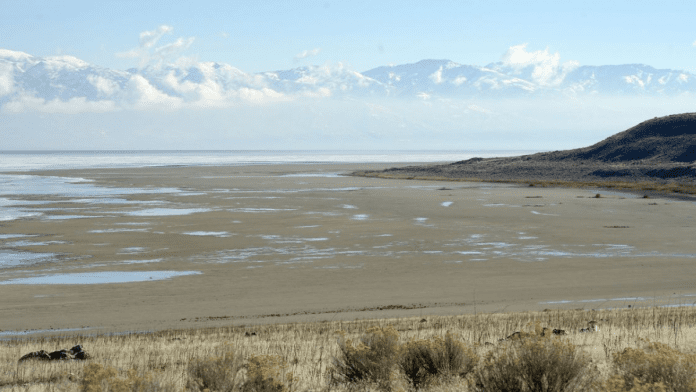News in brief: Environmentalists in the US are suing the Bureau of Land Management to prevent the construction of a potash mine in the western Utah desert, arguing it would harm the lake ecosystem and important habitats for migratory birds. Peak Minerals, the company behind the mine, believes it could enhance domestic fertiliser availability and food security amid disruptions in potash exports from Russia and Belarus.
Environmentalists in the US have filed a lawsuit to prevent the construction of a new potash mine in the western Utah desert, news report say.
The complaint, made against the Bureau of Land Management, maintains that the project would devastate a lake ecosystem there. Southern Utah Wilderness Alliance, the body behind the complaint, argues that the Bureau of Land Management failed to consider more environmentally friendlier options in approving a potash mining operation at Sevier Lake, a shallow saltwater body of water between Salt Lake City and Las Vegas.
Potassium sulfate is currently mined in Utahâs Bonneville Salt Flats, where the Bureau of Land Management also oversees a private companyâs potash mining operations.
The environmental group claims that the project could harm the regional groundwater aquifer, which is already experiencing damage by competing demands from surrounding cities, farms and a wildlife refuge close by.
Attorneys representing the group opine that a massive industrial development will eliminate the wild and remote nature of Sevier Lake and the surrounding lands. They add that it will also impair important habitats for migratory birds, and drastically affect important resource values like air quality, water quality and quantity and visual resources.
The complaint comes on the heels of recent loan acquisition of $30 million, by Peak Minerals, the company developing the Sevier Lake mine. It had secured the loan from an anonymous investor.
The company, in a press release, lauded the project and noted its potential to support long-term domestic fertiliser availability and food security in North America.
There has been increased demand for domestic sources of potash in the US since the start of the war in Ukraine. One fallout of the conflict is the disruptions in exports of potash from two global production leaders; Russia and Belarus. The mineral is favoured for fertiliser preparation owing to its lesser climate impact when compared to nitrogen and phosphorous based fertilisers. Meanwhile, higher prices have pushed global investors to expand or develop new mines.
In a wet year, Sevier Lake spans 506 square kilometers in an undeveloped part of rural Utah and it is part of the same prehistoric lakebed as the Great Salt Lake. Although mostly dry, the lake fills several feet in wet years and serves as a stop-over for migratory birds.



